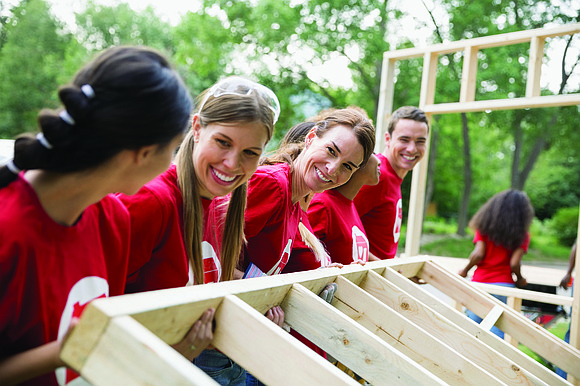Staying Safe Through a Hurricane
Family Features | 9/21/2018, 1:22 p.m.
While the immense power of hurricanes and tropical storms can greatly affect the lives of many in an instant, there are ways to increase your safety before, during and after the storm. These tips from the American Red Cross can help protect yourself and your family.
Before
• Put together an emergency kit, including basic but crucial items such as: water, food, a first aid kit, cell phones with chargers, contact information for family and friends, flashlights, extra batteries, medications, radios, copies of key personal documents, extra cash and maps.
• Working with your family, create an evacuation plan for your home. This includes discussing how to prepare and respond to emergencies, identifying the responsibilities of each person in the home and practicing the plan.
• As a storm is approaching, stay tuned to local radio or TV stations for the latest updates.
• Be prepared to evacuate quickly, and ensure that your emergency kit and other necessities are ready.
During
• Stay inside.
• If power is lost, use flashlights in the dark rather than candles.
• If possible, keep radio or TV stations tuned in for any new or developing information.
• Because waters could be contaminated with sewage or contain other dangerous substances, avoid contact with floodwater.
• If instructed to do so by local authorities, shut off the power and water mains.
• If you must be outdoors, don’t walk, swim or drive through floodwater. Don’t walk on beaches or riverbanks, and don’t allow children to play in or near floodwater.
• Stay out of areas subject to flooding, such as underpasses, dips and low spots.
• If you must drive and are caught on a flooded road with rising waters, get out of the car and move to higher ground.
After
• Communicate with family and friends to let them know you’re safe.
• If you are evacuated, don’t return until authorities confirm it is safe to do so.
• Continue listening to radio or TV stations for new or developing information.
• Be prepared for continued rainfall and additional flooding.
• Don’t use water that could be contaminated.
• If possible, help friends, family and neighbors who require assistance, especially the elderly, people without transportation, large families and people with disabilities.
• When returning home, stay away from buildings that have water around them.
• Stay away from dangling power lines and report them to power companies.
• For insurance purposes, take pictures of home and item damage.
• When cleaning your home, wear protective clothing like rubber gloves and boots, and be cautious.
• Inquire with professionals to check for roof damage and other more technical tasks.
Photos courtesy of Getty Images





